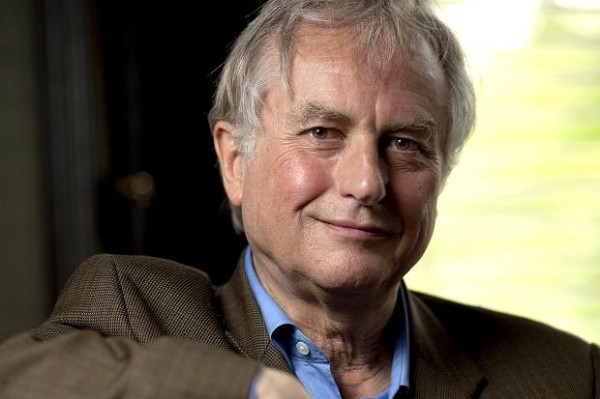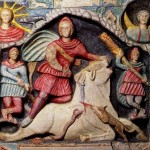Are Omnipotence and Omniscience Incompatible?
by Dr. Edward Feser
Filed under God's Nature
A reader recently asked for my response to this passage from Richard Dawkins’ The God Delusion:
"Incidentally, it has not escaped the notice of logicians that omniscience and omnipotence are mutually incompatible. If God is omniscient, he must already know how he is going to intervene to change the course of history using his omnipotence. But that means he can’t change his mind about his intervention, which means he is not omnipotent." (pp. 77-78)
We have here a clever rhetorical trick: Take a simplistic objection to theism that has been raised and answered many times and present it to the unwary, non-expert reader as if it were a devastating refutation that no one has ever been able to rebut.
Note first that for almost all theists, “omnipotence” does not entail the power to bring into being a self-contradictory state of affairs (e.g. creating a round square or a stone that is too heavy for an omnipotent being to lift). The reason is that there is no such power; the very notion of such a power is incoherent, precisely because the notion of a self-contradictory state of affairs is incoherent. God’s power would be limited only if there was some power he lacked. Since there is no such thing as a power to make contradictions true, his inability to do so is no limitation on his power. (And if an atheist insists that an omnipotent being would have to have such a power, that only hurts his own case. For that enables the theist to say, in response to any possible objection that the atheist could ever raise: “Since God can make contradictions true, he can make it true that he exists even though your argument shows he doesn’t!”)
Now, suppose A and B are logically coherent but mutually incompatible states of affairs. God, being omnipotent, can bring about either one. Suppose that in fact he wills to bring about A rather than B. Being omniscient, he knows that A rather than B is what he wills to bring about. Where is the conflict with omnipotence? Does his knowing that A is what he wills entail that he could not have willed B instead? No, he could have willed it; he just hasn’t. Does the conflict lie instead in the fact that he can’t will A and B together? No, because A and B are logically incompatible, and (as we have seen) omnipotence does not entail the power to generate contradictory states of affairs.
It seems that what Dawkins has in mind is a situation where God decides to do A at one point in time and actually carries out his decision at some later point in time. Since at the time of his decision he infallibly knows what he will do later on (given that he is omnipotent) it is not open to him to “change His mind” and do something different at that later time, and thus (Dawkins concludes) he is not omnipotent.
There are two problems with this, though. First, even if this were the right way to think about divine action, Dawkins’ conclusion wouldn’t follow. For what he is saying is that God cannot bring about the following situation:
S: An omniscient being infallibly knows that he will bring about A in the future and yet does not bring A about.
And from the fact that God cannot bring about S, Dawkins infers that He is not omnipotent. But the reason God cannot bring about S is that S is self-contradictory, and omnipotence does not entail the power to bring about self-contradictory states of affairs. (Again, if Dawkins wants to dig in his heels and insist that omnipotence must entail such a power, that will only hurt his case. For the theist can then say “Sure God can bring S about, since, being omnipotent, he can even make contradictions true!”)
As it happens, though, this is not the right way to think about divine action. From the point of view of classical theism, anyway, God is immutable and eternal. He doesn’t “change his mind” because he doesn’t change at all. Nor is there any temporal gap between his willing and his acting. Rather, God is altogether outside time. We make decisions and then carry them out moments, hours, days, or years later. God isn’t like that. When he wills that A happens at such-and-such a point in time, we might have to wait for A to happen, since we are within the temporal order; but God doesn’t wait, because he isn’t within the temporal order. For him, the whole created order – including every event at every point in time – follows from his one creative act.
Related Posts
Note: Our goal is to cultivate serious and respectful dialogue. While it's OK to disagree—even encouraged!—any snarky, offensive, or off-topic comments will be deleted. Before commenting please read the Commenting Rules and Tips. If you're having trouble commenting, read the Commenting Instructions.













